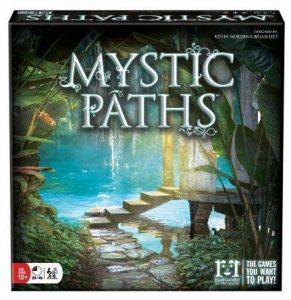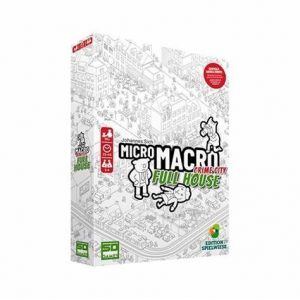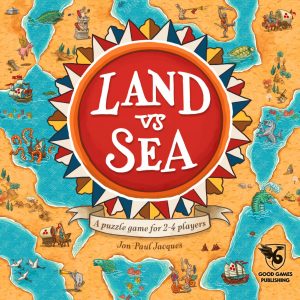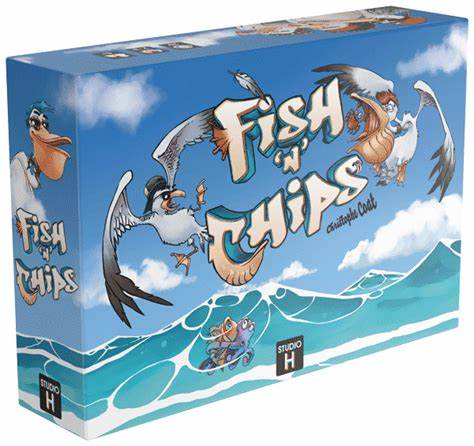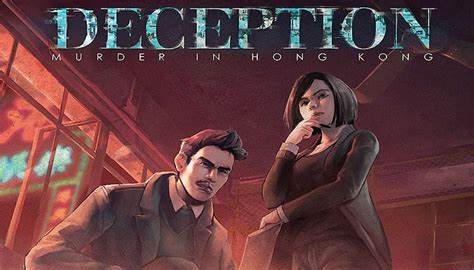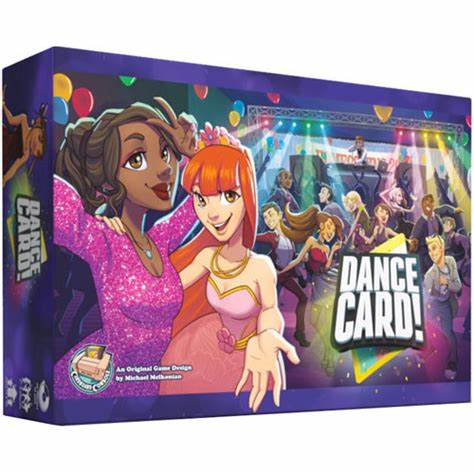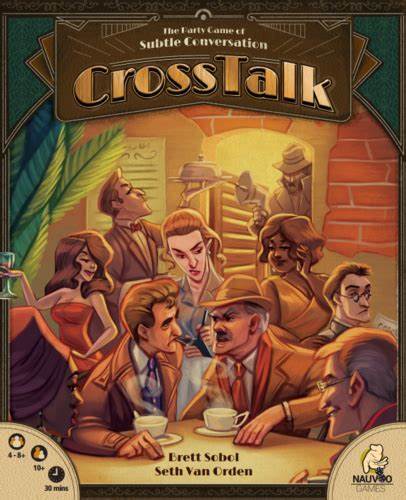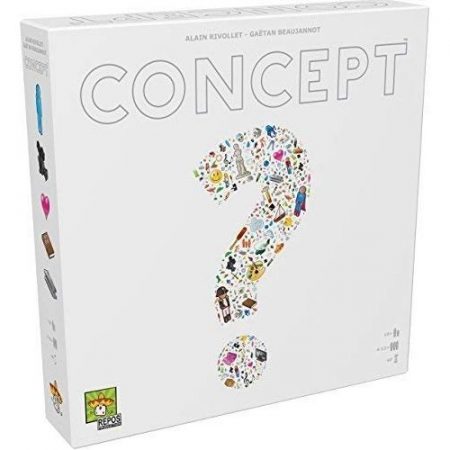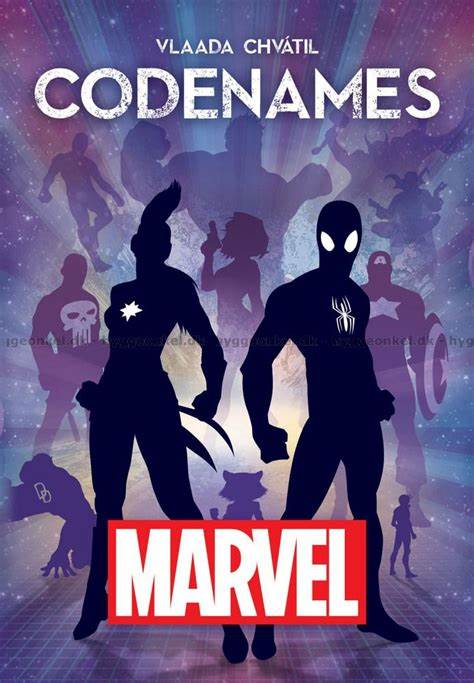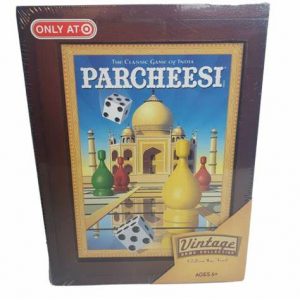
Parcheesi: Vintage Game Collection
Pachisi, the national game of India, dates back to 4 AD and remains popular today. Each player has a set of pawns that start in his or her corner of the board. The goal is to move the pawns around the board to the “home” section. Movement is controlled by dice. All players move around the same board, so they may capture each others pawns. Captured pawns are returned to their player’s corner and must start their journey over. The winner is the first player to move all pawns “home”.
Game Mechanics:
- Dice Rolling
- Racing
- Take That
- Team Based
Game Specifications:
- 2 – 6 Players
- ~30 Minutes
- Difficulty Weight 1.20
